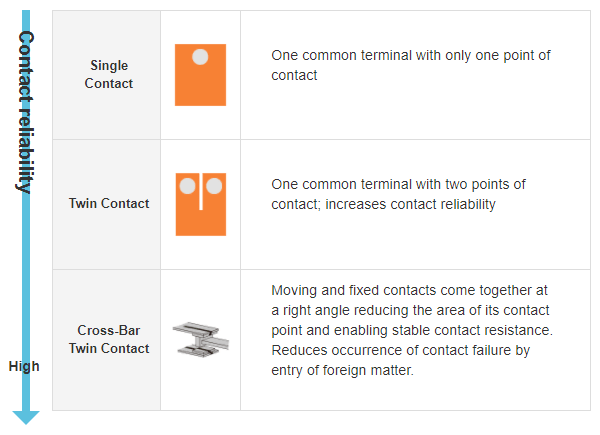What is the difference between single contact, twin contacts and crossbar twin contacts in the contact mechanism for relays?
ID: FAQE10001E
update:
Answer
Contact configurations are classified into three types according to the reliability level: Single contact, Twin contact and Cross-bar Twin contact. Refer to Explanation.
Explanation
The following table shows typical contacts of our relays.

- We have a double (or twin) break contacts type relay in our single contact relays. Double break contacts are suitable for opening and closing large-capacity loads that require breaking capability due to the large gap between the same polarity contacts.
- Crossbar single contact has the advantage of providing good contact matching even with slight contact misalignment, and is used for relatively small current capacities.
- The crossbar twin contacts have two contact points and have the advantage of a crossbar shape, making it suitable for opening and closing microloads.
For more information, see Relay Basics:Technoligy.
Quick tips
Select a signal relay (communication) for microload switching.
| Product category | Relays Signal Relays Power Relays |
|---|---|
| Classification | Selection, Characteristics |
| Related keywords |
|